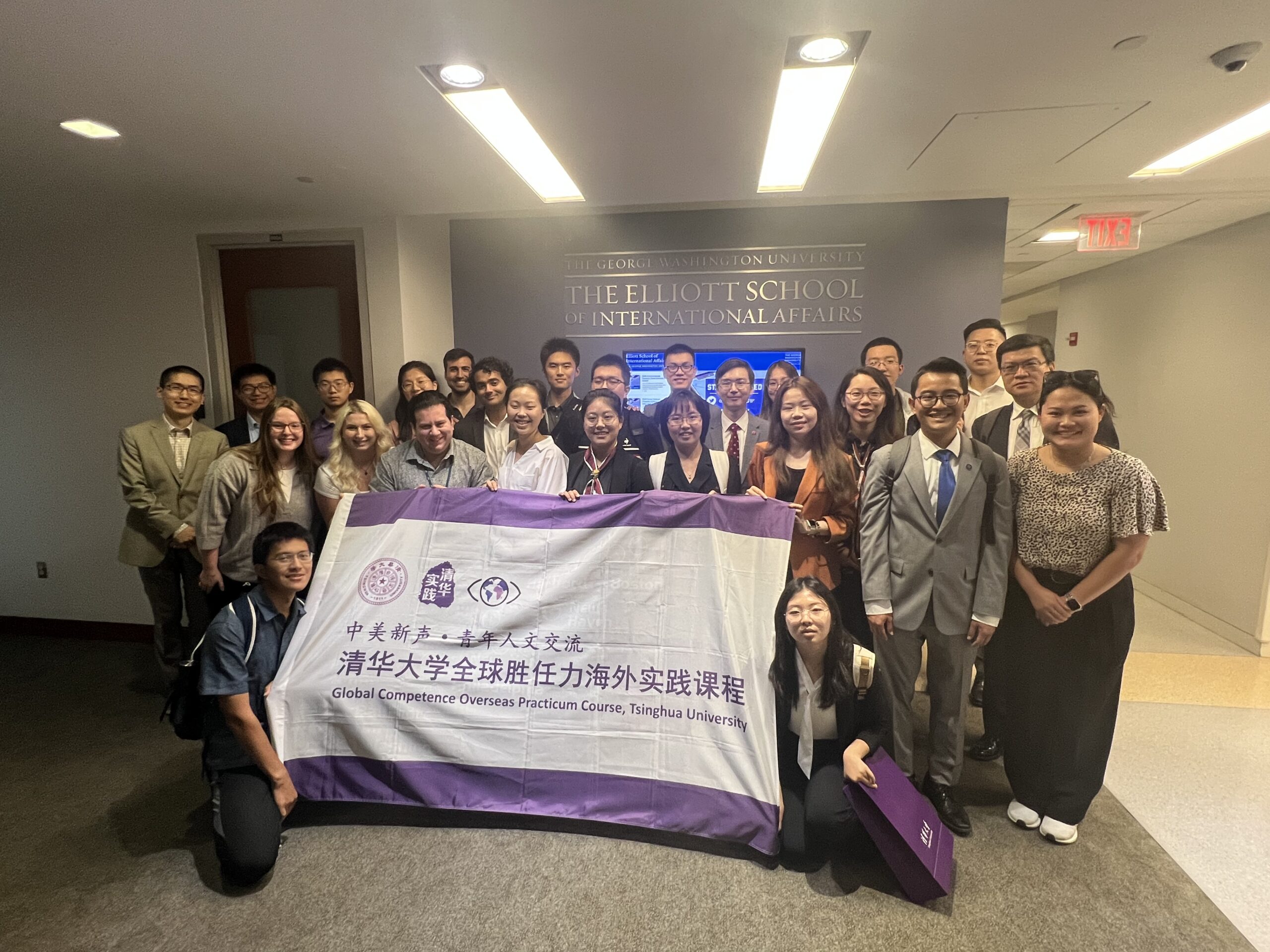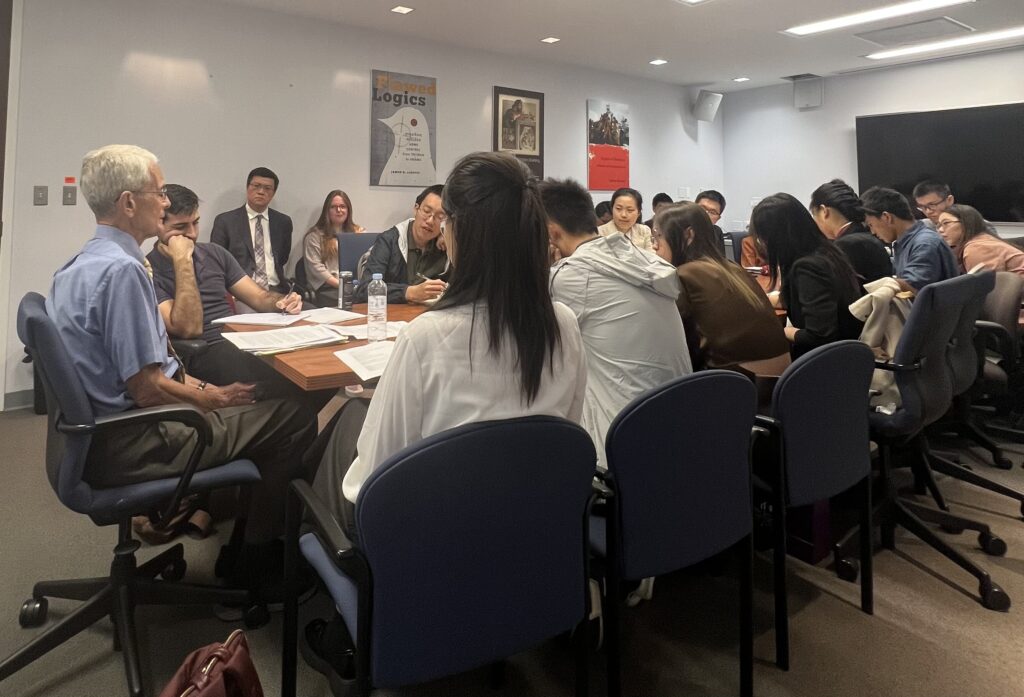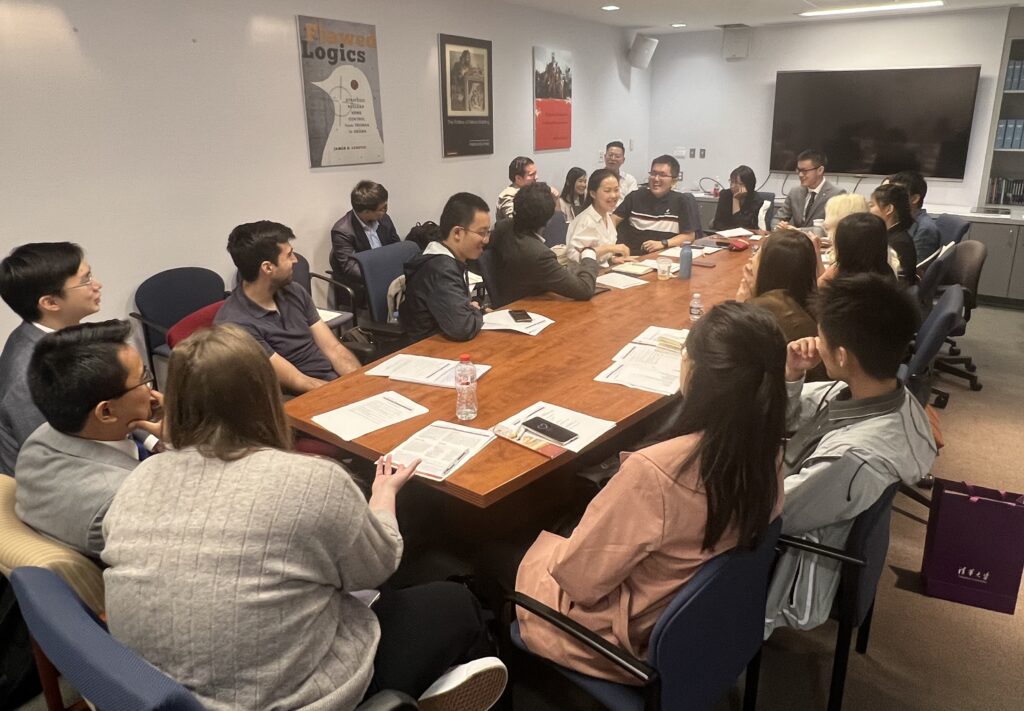On August 3, USCET staff received a 15-member student delegation from Tsinghua University called “Youth Voices,” led by Professor Da Wei. The delegation traveled the East Coast from July 26 to August 9, stopping in Boston, New Haven, New York, Philadelphia, and Washington, DC. They met with other students, professionals, and scholars on US-China relations as they tried to answer the questions, “How do young people in the new era understand US-China relations, and how can they contribute to the future of US-China relations?”

The US-China Education Trust, a key host for the delegation in DC, arranged a series of presentations and discussions around these questions. Ambassador Julia Chang Bloch, USCET’s founder and Executive Chair, warmly welcomed the group and described founding USCET 25 years ago to foster education and exchange between the US and China. She talked about the changing attitudes and growing importance to the bilateral relationship of Gen Z students born between 1997 and 2012. Ambassador Bloch asked the group about their studies and their perspective on the feelings of Gen Z students in China toward the United States. The group responded enthusiastically, sharing thoughtful insights.

A group of students from George Washington University (GW), Johns Hopkins, and the University of Virginia joined the Tsinghua group for the following session, in which GW Professor Robert Sutter, a USCET Advisor, spoke about the role of the American Congress in US-China policy. Drawing from his own writing on the subject, as well as his long US government career, Sutter spoke frankly about the growing role of Congress in China policy, and the concerns in Congress over CCP intentions, words, and actions. He gave a realistic picture of the views in Congress and a sense of the diversity of American attitudes toward China, and responded to students’ questions and comments.
The final session was a Guided Student Discussion among the students from China and the US, led by appointed student leaders. The topics spanned US-China relations, educational exchange, technology, generational differences, quality of life, and environmental challenges. Both sides expressed strong interest in maintaining this dialogue. USCET and Tsinghua are planning to sustain this productive exchange virtually in the upcoming fall term. At the conclusion of the discussion, USCET program manager Melynn Oliver accompanied the Tsinghua delegation to the Chinese American Museum of DC for a talk and tour of the museum’s collection.

Exchange with Tsinghua Faculty
On July 20, USCET met another Tsinghua University delegation, this one a small group of four faculty from the School of Social Sciences and the Climate Change Institute. The delegation was led by Professor Chen Qi, director of Tsinghua’s Center for US-China Relations. Their purpose was to reestablish in-person exchanges with American colleagues and hold frank discussions on the current state of US-China relations and the prospects for restarting academic links and educational exchanges. They had a lively conversation with Ambassador Julia Chang Bloch, USCET President Madelyn Ross, and Professor Robert Sutter, a member of USCET Advisory Board, and both sides agreed that resuming in-person academic exchanges is a high priority for both countries.
